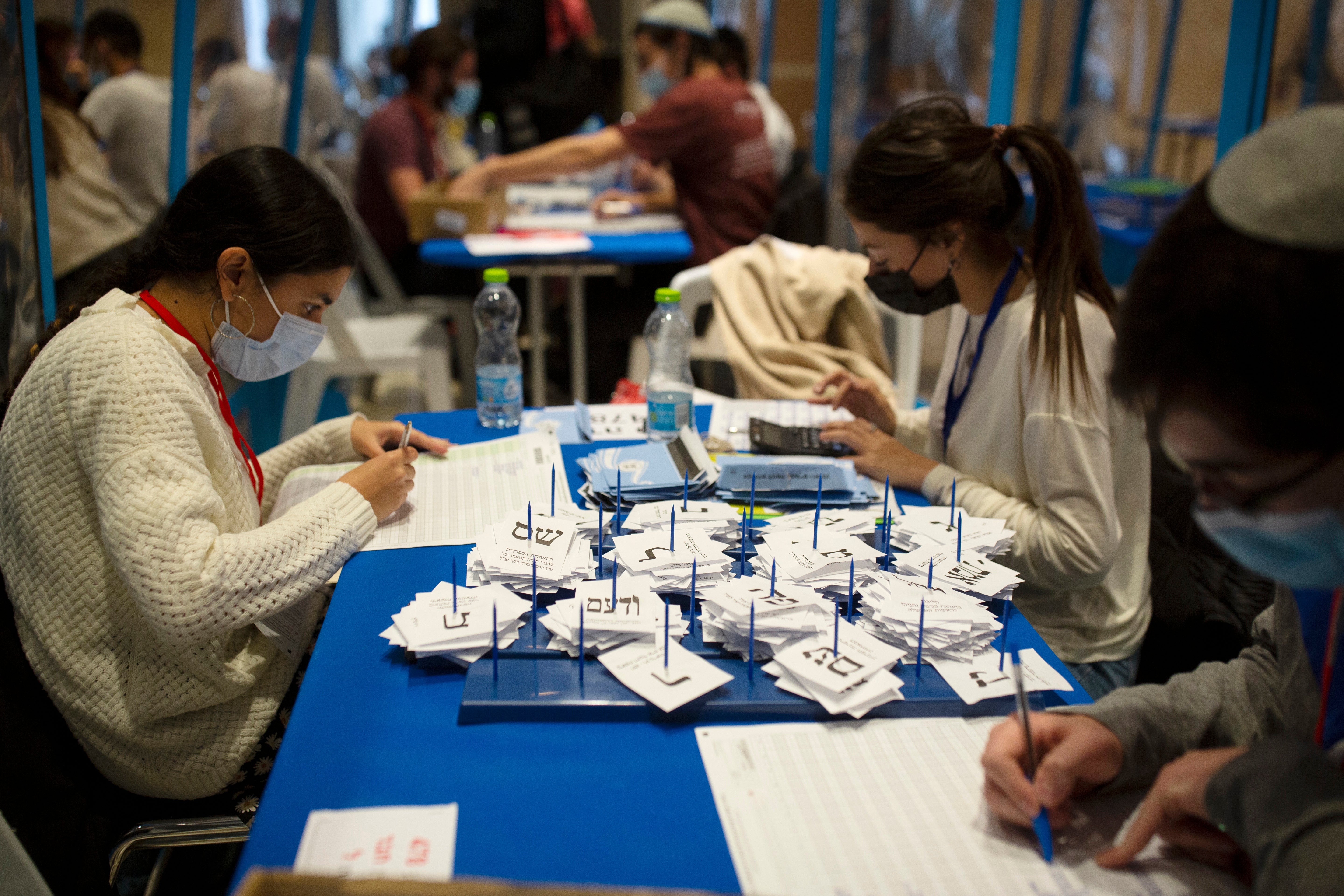Deadlock prevails as tallying resumes in Israeli election
Vote tallying in Israel has resumed in the deadlocked parliamentary elections held earlier this week, with neither Prime Minister Benjamin Netanyahu nor those determined to topple him gaining a clear path to forming a government

Your support helps us to tell the story
From reproductive rights to climate change to Big Tech, The Independent is on the ground when the story is developing. Whether it's investigating the financials of Elon Musk's pro-Trump PAC or producing our latest documentary, 'The A Word', which shines a light on the American women fighting for reproductive rights, we know how important it is to parse out the facts from the messaging.
At such a critical moment in US history, we need reporters on the ground. Your donation allows us to keep sending journalists to speak to both sides of the story.
The Independent is trusted by Americans across the entire political spectrum. And unlike many other quality news outlets, we choose not to lock Americans out of our reporting and analysis with paywalls. We believe quality journalism should be available to everyone, paid for by those who can afford it.
Your support makes all the difference.Vote tallying in Israel resumed Thursday in the deadlocked parliamentary elections held earlier this week, with neither Prime Minister Benjamin Netanyahu nor those determined to topple him gaining a clear path to forming a government.
Tuesday's vote, the fourth Israeli parliamentary elections in two years, was widely seen as a referendum on Netanyahu’s fitness to rule while under indictment. But neither the pro-Netanyahu camp nor his highly fragmented opponents gained 61 of the necessary 120 seats in parliament.
With around 95% of the votes counted, Netanyahu and his allies had a projected 52 seats compared to 57 held by his opponents. In the middle are two undecided parties: Yemina, a seven-seat nationalist party headed by a former Netanyahu lieutenant, and Raam, an Arab Islamist party that won four seats. Neither Naftali Bennett of Yemina nor Mansour Abbas of Raam has committed to either camp.
Deep divisions between the various parties will make either side gaining a majority difficult. Arab parties have never joined a governing coalition, and for nationalist parties such an alliance is anathema. Bezalel Smotrich, a Netanyahu ally and head of the Religious Zionist party, said Thursday that “a right wing government will not be established with support from Abbas. Period. Not on my watch."
Yohanan Plesner, president of the Israel Democracy Institute, said that the stalemate is Israel's “worst political crisis in decades.”
“It’s apparent that our political system finds it very difficult to produce a decisive outcome,” Plesner said. He added that inherent weaknesses in Israel's electoral system are compounded by “the Netanyahu factor”: a popular prime minister struggling to stay in power while under indictment. "Israelis are split right down the middle on this question.”
Several of Netanyahu’s opponents have started discussing advancement of a bill to disqualify a politician under indictment from being tasked with forming a government, a measure aimed at barring the long-serving prime minister from office. A similar bill was floated after the March 2020 elections, but was never passed.
Netanyahu is on trial for fraud, breach of trust and accepting bribes in three cases. He has denied any wrongdoing and has dismissed the charges as a witch-hunt by a biased law enforcement and media.
Despite the charges against him, Netanyahu’s Likud party received around a quarter of the votes, making it the largest party in parliament. A total of 13 parties received enough votes to enter the Knesset — the most since the 2003 election — and represent a variety of ultra-Orthodox, Arab, secular, nationalist, and liberal factions.
A final tally of the votes was expected to be completed by Friday.